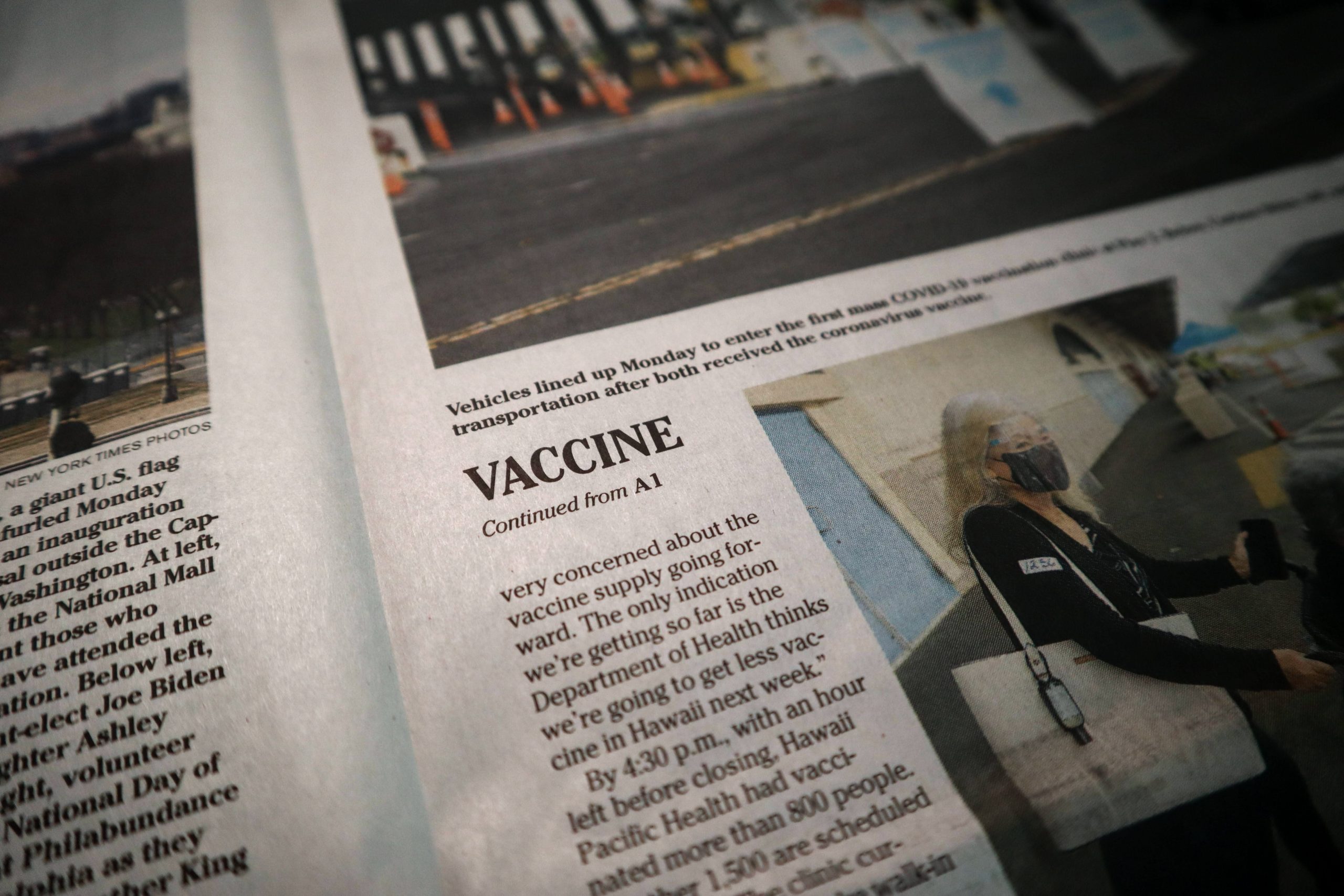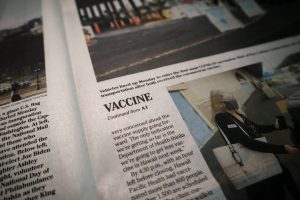How did the European press treat the covid-19 “no-vax” phenomenon?

In AI4Media, Idiap has worked on the analysis of newspapers in different countries and their relationship with misinformation in the context of Covid-19 vaccination news.
Initially, a dataset was created, comprising more than 50,000 articles on Covid-19 vaccination from 19 newspapers across 5 European countries. From this dataset, a set of subtopics (within the main topic of covid vaccination news) was identified using topic models. Companies, countries, and individuals most frequently mentioned in each country were also identified using Named Entity Recognition techniques, while the sentiment of both headlines and full articles was determined. The results revealed consistencies across countries and subtopics (e.g. a prevalence of a neutral tone, and relatively more negative sentiment in non-neutral articles, with few exceptions like the case of vaccine brands). Moreover, distinctly high negative-to-positive sentiment ratios were identified for the “no-vax” subtopic, showing that this issue had a notably negative tone. This dataset and the results of the analysis were presented at the ACM International Workshop on Multimedia AI against Disinformation (MAD’22) in Newark, US. For more details, the paper can be consulted here.

Subsequently, Idiap directed its focus towards the “no-vax” movement theme. This line of research examines how the European press addressed reactions against the Covid-19 vaccine and the disinformation and misinformation associated with this movement. Based on the Covid-19 vaccination news dataset, Idiap employed a number of methods, including named entity recognition, word embeddings, and semantic networks, to comprehend the coverage provided by the European press within the disinformation ecosystem. The results of this multi-faceted analysis demonstrate that the European press actively countered a variety of hoaxes primarily propagated on social media and criticized the anti-vax trend, irrespective of the political orientation of the newspaper. This confirms the significance of studying the role of high-quality press in the disinformation ecosystem. This research was presented at the ACM International Workshop on Multimedia AI against Disinformation (MAD’23) in Thessaloniki, Greece. For more details, the paper can be found here.
Overall, Idiap’s work serves as a point of comparison with other news sources on a topic where disinformation and misinformation have led to increased risks and negative outcomes for people’s health. We believe that linguistic analyses of high-quality press in Europe can contribute to informing the design of tools against disinformation, serving as a benchmark for what constitutes reliable information.
Authors: David Alonso del Barrio & Daniel Gatica-Perez (Idiap Research Institute)

